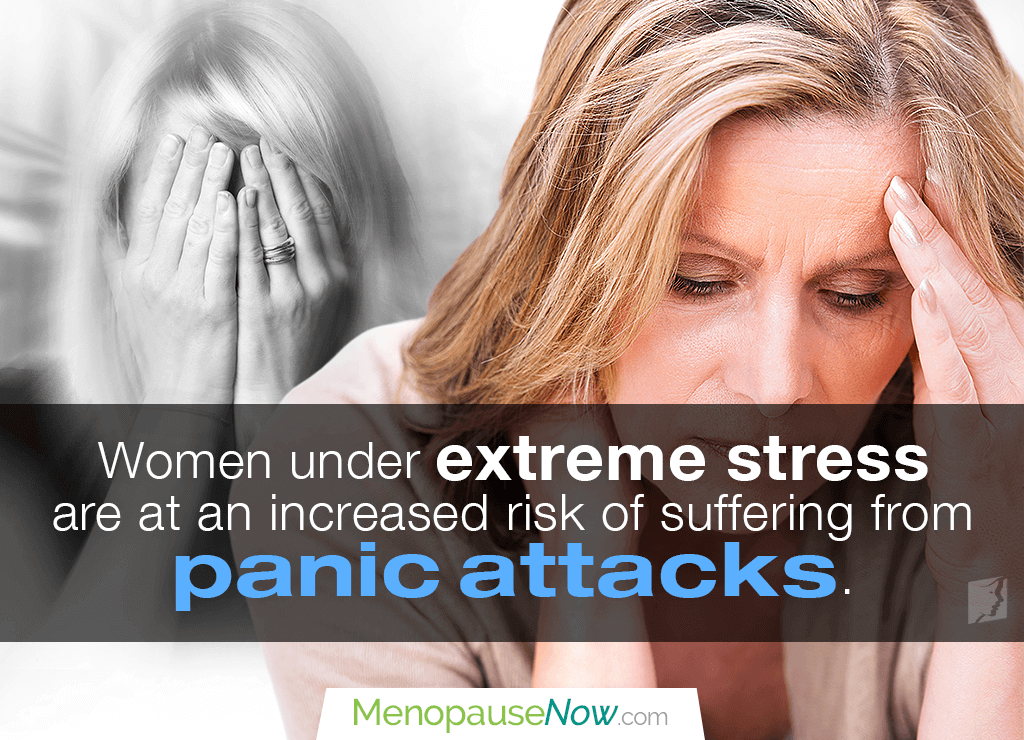Women suffering from panic attacks are often told that the root cause of their struggle is stress. Many, however, do not fully see how the two could possibly be linked. Continue reading to learn all about the link between stress and pain attacks, including more about each, other causes, treatment methods, and further necessary info for overall health.
About Stress in the Body
It is important to remember that by default, stress is a normal mechanism of the body in response to perceived danger.
When the body is under stress, it activates the sympathetic nervous system (SNS) and enters into “fight or flight” mode. This is when the hypothalamus signals hormone production by the pituitary and adrenal glands to provide the energy needed to deal with the stressor, cortisol being a main one of them.
Once danger passes, the parasympathetic nervous system (PNS) counteracts the physiological effects of the SNS to bring the body back to its relaxed state.
Stress becomes a problem when it is not properly relieved and becomes chronic, causing a continuous production of cortisol in the body, leading to a range of mental and metabolic disorders.1,2
About Panic Attacks
Panic attacks are abrupt onsets of intense fear that can lead to physical and psychological reactions in the body, reaching a peak within a few minutes and for up to half an hour.
Sufferers of panic attacks often describe them as feeling as if they are dying, having a heart attack, or going crazy.
Although the cause of panic attacks is largely unknown, the mechanism of occurrence is credited to the unnecessary (without real danger) activation of the SNS.
Relationship between Stress and Panic Attacks
While much is known about panic attacks themselves, what is still being researched is how they affect the brain and what provokes their occurrence.
Interestingly, many panic attack symptoms mirror those of chronic stress, such as an increased heart rate, respiration, and perspiration, leading researchers to investigate a relation between the two.
One research study suggests that under prolonged stress, functioning of the SNS is compromised without being counteracted by the calm-inducing PNS.3
Another source proposes that hyperventilation caused by stress evokes panic attacks in some prone to them, which has - indeed - been seen true.1
Nevertheless, no matter the reasoning, what is known is that women who are under extreme stress or have a temperament that is more sensitive to stress are at an increased risk for suffering from panic disorder, recurrent panic attacks.
Other Causes of Panic Attacks
Aside from aforementioned influences, other factors such as genetics can trigger an attack.
Moreover, for menopausal women who have not suffered from panic attacks during premenopause, their occurrence are most often attributable to the drastic hormonal changes, mainly of estrogen.
Women are also reportedly more vulnerable to other psychiatric conditions, including anxiety and depression, during this time.
As a matter of fact, it has been found that women who were prone to anxiety or suffered from postpartum depression are more likely to suffer from panic disorder in perimenopause.4
How to Treat Panic Attacks
Most certainly, approaches to relieving panic attacks will depend upon the underlying cause.
Nevertheless, panic disorder treatments for women passing through menopause focus on endocrine-friendly initiatives, such as lifestyle adjustments alongside the use of alternative medicine traditionally used to balance hormones for optimal health.
In some cases, prescription drugs can be used, especially for those suffering from depression alongside panic attacks. They include selective serotonin reuptake inhibitors (SSRIs), serotonin and norepinephrine reuptake inhibitors (SNRIs), or other sedatives, like benzodiazepines.
Conclusions
While harrying and often life-disrupting, women do not have to sign off as defeated when looking to battle panic attacks caused by stress and other factors. By instilling personalized management techniques and getting down to the root cause, it is possible to live an emotionally stable and calm lifestyle far into one's twilight years.
Sources
- Anxiety and Depression Association of America. (n.d.). Symptoms. Retrieved November 5, 2019, from https://adaa.org/understanding-anxiety/panic-disorder-agoraphobia/symptoms
- Healthy Women. (n.d.). Menopause and Anxiety: What's The Connection? Retrieved November 5, 2019, from https://forevher.healthywomen.org/facts-to-know-questions-to-ask/menopause-and-anxiety-whats-the-connection/
- Mayo Clinic. (2019). Panic attacks and panic disorder: Symptoms & causes | Panic attacks and panic disorder: Diagnosis & treatment. Retrieved November 5, 2019, from https://www.mayoclinic.org/diseases-conditions/panic-attacks/symptoms-causes/syc-20376021 | https://www.mayoclinic.org/diseases-conditions/panic-attacks/diagnosis-treatment/drc-20376027
- The North American Menopause Society. (n.d.). Going Mad in Perimenopause? Signs and Solutions. Retrieved November 5, 2019, from https://www.menopause.org/for-women/menopauseflashes/menopause-symptoms-and-treatments/going-mad-in-perimenopause-signs-and-solutions
- Victoria State Government. (2018). Panic attack. Retrieved November 7, 2019, from https://www.betterhealth.vic.gov.au/health/conditionsandtreatments/panic-attack
Footnotes:
- American Psychological Association. (n.d.). Stress Effects on the Body. Retrieved November 7, 2019, from https://www.apa.org/helpcenter/stress-body
- Heinze, K. et al. (2016). Longer-term increased cortisol levels in young people with mental health problems. Psychiatry Research, 236, 98-104. doi: 10.1016/j.psychres.2015.12.025
- Won, E. & Kim, Y. (2016). Stress, the Autonomic Nervous System, and the Immune-kynurenine Pathway in the Etiology of Depression. Current Neuropharmacology, 14(7), 665-673. doi: 10.2174/1570159X14666151208113006
- Cleveland Clinic. (2016). Can Menopause Cause Your Anxiety or Panic Attacks? Retrieved November 5, 2019, from https://health.clevelandclinic.org/can-menopause-cause-your-anxiety-or-panic-attacks/




